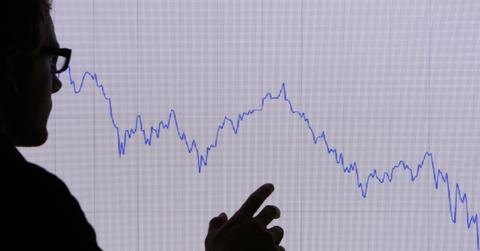What’s the January Effect and Which Stocks Could Benefit in 2022?
What’s the January effect and which stocks could benefit in 2022? JPMorgan expects a strong January effect in 2022. Watch these 10 stocks.
Dec. 28 2021, Published 8:11 a.m. ET
Wall Street has its own terminology, which can be perplexing at times. We have many “effects” like the “May effect,” the "November effect," and the “September effect.” As 2021 draws to a close, investors are wondering about the “January effect.” What’s the January effect and which stocks could benefit in 2022?
U.S. stocks had another splendid year and the S&P 500 has hit record highs in 2021. We seem to be in a “Santa Claus rally," another effect or nomenclature for the typical year-end rally in stocks. However, analysts are generally circumspect for the market outlook for 2022, with consensus estimates calling for a low single-digit upside in the S&P 500.
What's the January effect in stocks?
Stocks tend to go up in January. The reasoning is that investors, both retail and institutional, sell their losing stocks in December for tax-loss harvesting. In simple terms, in December, investors sell the stocks where they're making losses. As a result, they incur capital losses that can then be offset against the winning positions where they have made capital gains.
Looking at the polarized markets in 2021, only a bunch of stocks accounted for the bulk of market returns, while many other stocks sagged. There was a good opportunity for such tax-loss harvesting.
A lot of investors who sell these losing positions in December see them as good long-term buys and intend to buy them again. This buying spree in stocks leads to an increase in stock prices in January, which gives us the name "January effect."
JPMorgan expects a major January effect in 2022.
JPMorgan is foresting a pronounced January effect in 2022 especially in high beta names, which are stocks that rise or fall more than the broader markets. “We expect the upcoming ‘January effect’ to be even more pronounced this time around given extreme positioning and sentiment, with a potential for a large High Beta squeeze,” said JPMorgan in its note.
Investors should watch these January effect stocks in 2022.
JPMorgan has listed 10 stocks that could see a January effect in 2022. While the markets are trading at record highs, these names are trading at a significant discount to their 52-week highs.
Home fitness company Peloton, which has been among the worst-performing “stay-at-home” stocks in 2021, is down over 75 percent from its 52-week highs. Peloton stock is on JPMorgan’s list. New Fortress Energy and Sunrun have also fallen over 60 percent from their 52-week highs, and JPMorgan is predicting a January effect in them.
COVID-19 vaccine maker Moderna is also on the list. The stock is down almost half from its 52-week highs. Another healthcare company Novavax is on the list. JPMorgan has also listed Carvana, Macy’s, Texas Pacific Land, and Under Armour as among the stocks that could see buying in January.
The last company on JPMorgan’s list is U.S. Steel Corporation. The stock is down a quarter from its 52-week highs even though it outperformed the markets by a wide margin in 2021. The U.S. steel markets are looking quite strong and we could see some upwards momentum in steel stocks as we approach the seasonally strong first quarter.




